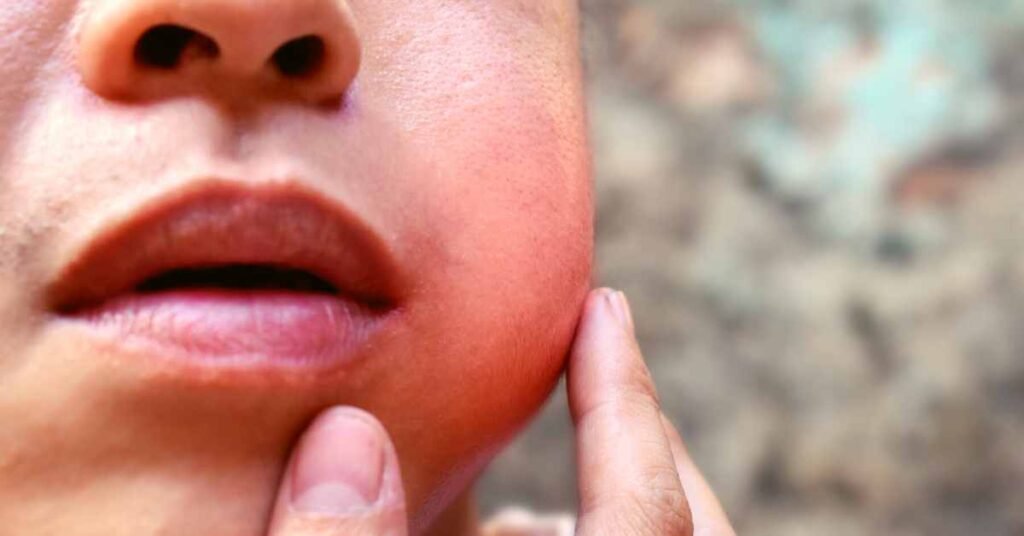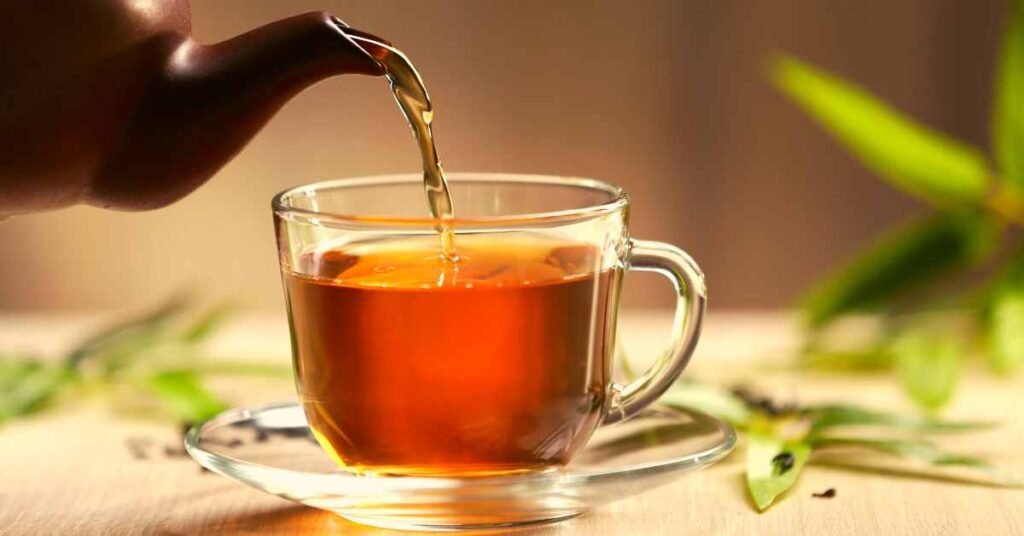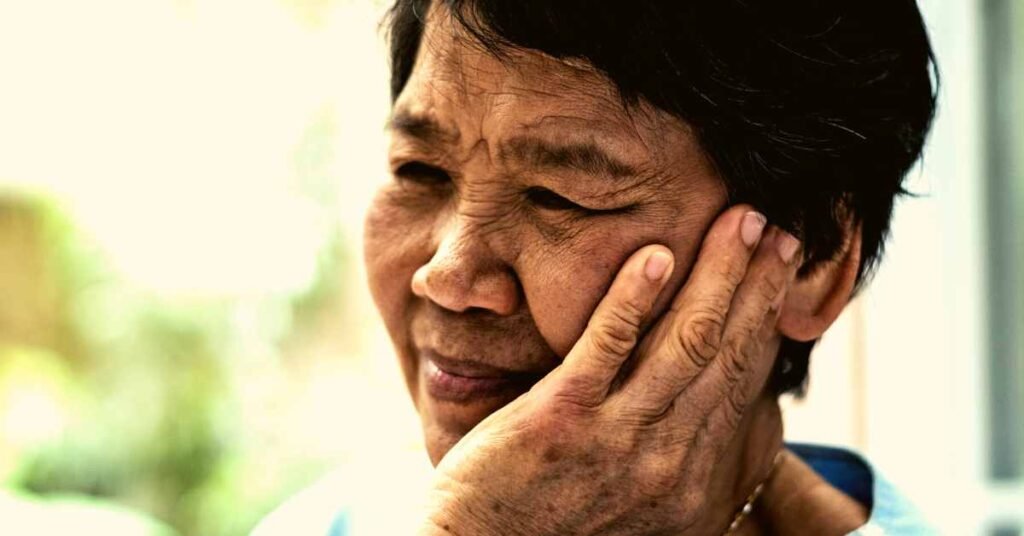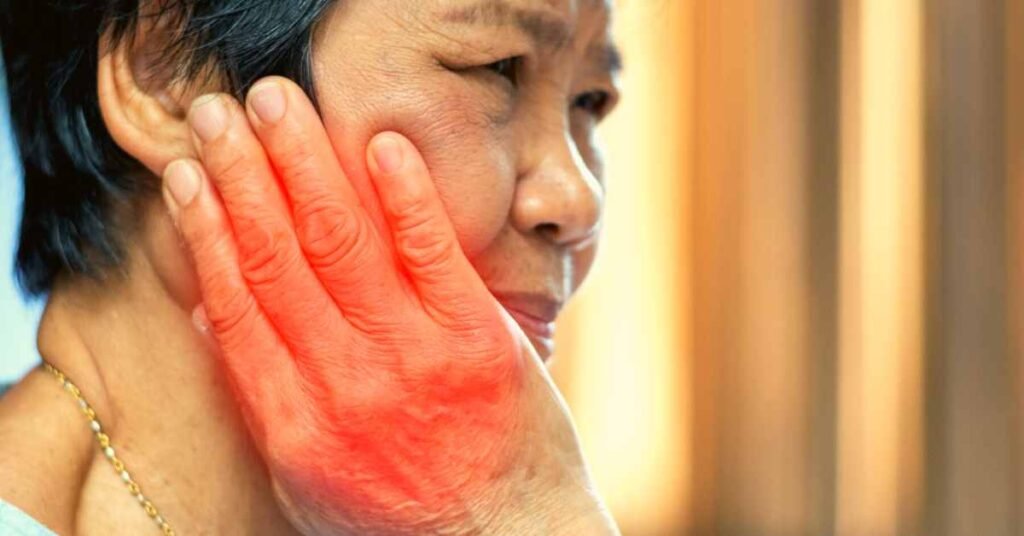Tea, a beverage cherished worldwide for its diverse flavors and health benefits, has been an age-old remedy for various ailments.
In the realm of traditional medicine, tea’s therapeutic properties extend beyond mere refreshment.
In this article, we explore the potential of tea as a soothing remedy for mumps, a viral infection characterized by swollen salivary glands.
Delving into the historical use of tea in treating illnesses and the scientific backing behind its healing properties, we unravel the ways in which tea can provide relief and support during a bout of mumps.
Historical Perspective

Tea has a rich history of being used as a remedy in traditional medicine systems, including Chinese, Indian, and Ayurvedic practices.
Ancient Chinese healers, for example, have documented the medicinal properties of tea as far back as 2737 BCE, attributing it to Emperor Shen Nong.
In traditional Chinese medicine, tea is believed to balance the body’s energies and promote overall well-being.
This historical context sets the stage for understanding tea’s potential in providing relief for ailments like mumps.
Antioxidant Richness
One of the key reasons tea has been considered a healing elixir lies in its abundance of antioxidants.
The polyphenols found in tea, such as catechins and flavonoids, possess potent antioxidant properties.
These compounds are known to neutralize free radicals in the body, thereby reducing inflammation and supporting the immune system.
When combating mumps, a condition marked by inflammation of the salivary glands, the anti-inflammatory effects of tea become particularly relevant.
Green tea, in particular, is lauded for its high levels of catechins.
Epigallocatechin gallate (EGCG), a type of catechin found in green tea, has been studied for its anti-inflammatory and antiviral properties.
Incorporating green tea into the diet during a mumps infection may aid in alleviating symptoms and promoting a faster recovery.
Hydration and Comfort

Mumps often lead to difficulty in swallowing and a dry or sore throat.
The simple act of sipping on warm tea can provide much-needed relief.
Hydration is crucial during any illness, and tea, being a hydrating beverage, helps keep the body well-moisturized.
The warmth of tea can also soothe the throat and ease discomfort, making it a comforting companion during the recovery period.
Herbal Teas for Mumps
Beyond the classic green and black teas, various herbal infusions offer targeted benefits for mumps patients.
Some herbal teas possess antiviral and anti-inflammatory properties that can complement the body’s natural healing processes.
- Peppermint Tea: Known for its soothing properties, peppermint tea can help alleviate throat discomfort and reduce inflammation. Its menthol content provides a cooling sensation, offering relief to those experiencing fever associated with mumps.
- Chamomile Tea: Renowned for its calming effects, chamomile tea may help with relaxation and sleep, both of which are essential for a swift recovery. Chamomile also boasts anti-inflammatory properties, making it a gentle yet effective choice during illness.
- Ginger Tea: With its immune-boosting properties, ginger tea can aid in fighting off infections. Additionally, ginger has anti-inflammatory effects that can be beneficial for reducing the swelling of the salivary glands.
- Licorice Root Tea: Known for its antiviral and anti-inflammatory properties, licorice root tea may help combat the viral infection associated with mumps and reduce inflammation in the affected glands.
Scientific Evidence

While traditional wisdom and historical practices provide a strong foundation, modern science also supports the potential of tea in aiding recovery from viral infections.
Research studies have explored the antiviral properties of tea compounds and their impact on various infections.
A study published in the “Journal of Medical Virology” in 2003 investigated the antiviral effects of catechins from green tea against the mumps virus. The findings suggested that green tea catechins, particularly EGCG, exhibited inhibitory effects against the mumps virus, highlighting the potential of green tea in managing mumps infections.
Furthermore, the anti-inflammatory effects of tea have been explored in the context of viral infections. The “Journal of Medicinal Food” published a review in 2015 that discussed the anti-inflammatory properties of tea polyphenols and their role in modulating the immune response.
This information supports the notion that tea, with its anti-inflammatory compounds, may assist in alleviating the inflammation associated with mumps.
Practical Tips for Incorporating Tea during Mumps
- Choose Wisely: Opt for teas rich in antioxidants, such as green tea, and herbal infusions known for their antiviral and anti-inflammatory properties.
- Stay Hydrated: Ensure an adequate intake of fluids through tea and water to prevent dehydration, a common concern during illness.
- Warm and Comforting: Consume warm tea to soothe the throat and provide comfort. Adding a touch of honey may enhance both flavor and throat-soothing effects.
- Herbal Blends: Experiment with herbal blends that combine beneficial herbs for a synergistic effect. For example, a blend of chamomile, ginger, and licorice root may offer a well-rounded approach to mumps relief.
Final Word

Tea, with its rich historical background and supported by scientific evidence, emerges as a comforting and potentially beneficial remedy for individuals grappling with mumps.
The antioxidant-rich nature of tea, combined with its soothing properties and diverse herbal options, makes it a versatile choice for those seeking natural support during an episode of mumps.
While tea cannot replace medical treatment, incorporating it into a holistic approach to wellness may contribute to a more comfortable and faster recovery.
As always, consulting with a healthcare professional is essential for appropriate guidance and personalized care.
MEDICAL DISCLAIMER
Itsnevernotteatime.com cannot and does not contain medical/health advice. The medical/health information is provided for general and educational purposes only and is not a substitute for professional advice.




